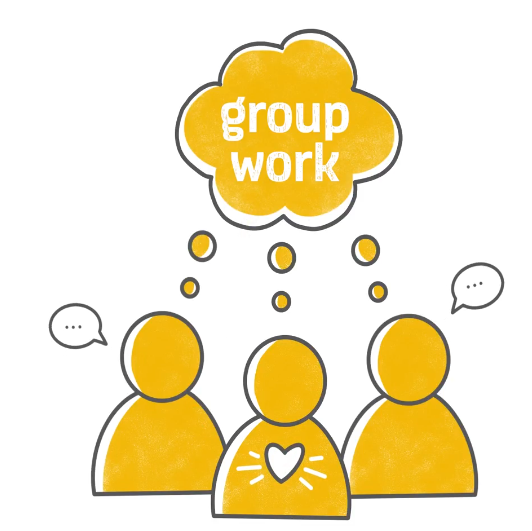Connect with...
Karolien van Nunen
TPM Faculty | SUTQ | Pure
Diversity is enriching! Optimising group work with students from different universities
The SUTQ project aims to enhance group work among students from different universities, particularly within a joint minor program between TU Delft and Leiden University, by acknowledging and leveraging the diverse educational cultures and skills each student brings. To address challenges such as varying approaches, expectations, and potential conflicts arising from these differences, the project introduces weekly working classes that focus on fostering collaboration, understanding, and integration of diverse perspectives. This structured support is designed to improve student satisfaction, academic success, and personal growth by optimizing cross-university teamwork.
-
In the joint minor Public Risk and Disaster – a collaboration between TU Delft and Leiden University – students are stimulated to collaborate with students from different universities in order to strengthen the multidisciplinary perspective. This teamwork with students from different universities increases critical thinking and problem-solving skills, it is highly engaging, and it can open doors for students to develop interests outside their own field of expertise.
When students from different universities start working together in a group, it can be beneficial to pay specific attention in this regard, as coming from a different university implies, on the one hand, a difference regarding knowledge and skills, for instance, writing skills, the use of specific software, or English proficiency. But it also implies potential differences in the educational culture, for instance regarding student participation during lectures, emphasis on individual achievements, peer relationships, class attendance, or study habits.
When starting a group work, these differences could clash. For instance, there could be conflicting ideas on how to approach the project, or there could be different expectations regarding the process to come to the group work result. Students also have more possibilities: they can approach the problem they need to solve in the course from, for instance, a social science perspective or from an engineering perspective. This can lead to an overwhelming experience, potentially leading to the group going for the easiest or shallow solution.
So, the group work might be influenced by differences between educational cultures. Therefore, students need to be supported and guided to optimise this cross-university collaboration. Research shows that, if students receive support to optimise their group work, student success increases. This student success does not only entail academic achievement, so delivering assessments of high-quality and obtaining good grades for the group work. But this success also entails professional development and personal growth.
-
These educational differences and the impact of these differences on the group work was something that was experienced by the lecturers of the joint minor. To gain evidence-based insights on this matter, a questionnaire was conducted amongst students who were working in a group with students from different universities (n=34).
In addition, four teachers educating both students from TU Delft and from Leiden University were questioned in order to get a better view of the existing educational differences. This has led to interesting insights. For instance: "There is a major difference between students from TU Delft and Leiden University. The difference is even reflected in the mottos of the universities. The motto of Leiden University is: In Leiden, you get to know the world. The motto of TU Delft is: The future is yours. The first one is more passive and more receiving. The second is more active and more shaping. This can also be seen in student behaviour and attitudes. A student from Leiden University is more focused on the present and on optimising the current situation (reasoning in terms of problems). For instance: how can we reduce nurse fatigue by optimizing shift systems? Whereas TU Delft students are more focused on the future. For instance: we will no longer need healthcare professionals in x years, because then AI will make the diagnoses and the robot will operate."
-
The questionnaire results show that the majority of the students experience educational differences when working in groups with students from different universities. 35% percent indicates that these differences have led to difficulties within the group work.
The questionnaire also shows a clear correlation between how satisfied students are with the group work, and the additional support they need from the lecturer. Of the students indicating that they are dissatisfied with the current group work, 71% indicate that they need extra support on how to collaborate effectively with students from different universities. Of the students indicating that they are satisfied with the current group work, only 10% indicate that they need extra support on how to collaborate effectively with students from different universities.
This support can be influenced, and thereby we can affect student success, entailing academic achievement, professional development, and personal growth. Results of the questionnaire also show that there is a clear link between the level of satisfaction with the current group work, and how valuable students find group formation with students from different universities. Of the students being dissatisfied with the group work, 43% find group formation with students from different universities valuable. This is compared to the students being satisfied with the group work, where 71% find group formation with students from different universities valuable.
-
Based on the input from the questionnaires and interviews, weekly working classes seemed to be the best solution.
These weekly working classes will be organised on campus. Students are stimulated to meet each other also outside these official working classes. But foreseeing these weekly time slots will ensure that sufficient time is allocated to get together with the group, in person. This way, we want to prevent that online collaboration is used as a replacement for in-person group interaction. Online collaboration might sometimes seem more convenient, definitely because traveling across universities might take up more time. Furthermore, not enough in-person contact between group members might inhibit the opportunities to really learn from each other.
During these working classes, students will be supported to work together, as a team. The focus will be on the back-end tasks and on the front-end tasks. The back-end tasks represent the project that students will have to work on during a course. So the students will have to work with and around the course content. But also the front-end tasks will be addressed. These front-end tasks represent the collaborative process, so the process that will lead to the project results. It is about how to approach the task, communication,task delegation, and so on. These front-end tasks are not always straightforward in regular group work, let alone in cross-university groups where these front-end tasks may be complicated by differences in educational cultures.
During the working classes, regarding the front-end tasks, the main focus will be on cross-university student collaboration. As the students are following a minor, they are in their third bachelor year. Most probably, students already have received general instructions on how to function in a team. But it is likely that in this minor, students will be working with people from another university for the first time.
-
A general set-up of these weekly working classes has been designed.
-
First, students will receive an awareness session on educational differences. Educational differences might imply advantages, such as learning new perspectives and approaches. But it also might imply potential challenges, such as slowing down the group process.
In this awareness session, two points of view are central. First of all, falling into stereotyping must be avoided. We do not want to label all students coming from a specific university with specific characteristics. Secondly, differences between educational cultures are not deficits, but they must be considered as assets. It should be avoided to reason in terms of ‘things that a student lacks’. After all, this way of thinking requires a normative benchmark for what constitutes “good” or “adequate” knowledge, skills, and attitudes, and this determination is subjective and biased. In other words, differences should be considered as a strength, as an added value, and not as a burden.
-
In a following session, students will identify and acknowledge the educational differences within their own group, and reflect upon these differences. What makes a student as a group member authentic? What are specific skills, knowledge, and attitudes related to being a TU Delft student, a Leiden University student, or a student from a different university? What is the specific expertise of a student that they can bring into the complex problem that they will have to solve in the project?
This is a session on realisation, where students have to find a meaningful role, and where they will have to reflect on how they can bring their educational strengths into the group work. Students will also reflect upon certain assumptions and expectations: what do they or do they not expect from their fellow students from other universities? Did they consciously choose for a joint minor? And what do they see as opportunities and possible pitfalls?
In short, this session is all about daring to name the differences, assumptions and expectations, and reflecting upon how these aspects can be used as an advantage instead of as a stumbling block.
-
After being aware of and acknowledging the educational differences, the project work can start. From then on, the students will start working on the application of the course content. But during this process, attention will be paid to making optimal use of the identified educational differences.
What is often seen in group work, is that students divide the work, work on their own part separately, and then stitch the work of different individuals together like it is ‘Frankenstein's Monster’. However, the true purpose of cross-university group work is to use the range of different perspectives that each group member has, to think collectively, and to debate with each other in order to find a solution and develop a logical, integrative, and attuned end product. A product that is the result of gaining insight, interpreting, and understanding other insights, different perspectives, and different types of methodological approaches then from what students have learned at their own university.
In short, students will be supported in how they can make optimal use of cross-university differences to increase the success of the group work. And importantly, how they can learn from each other’s differences, both regarding knowledge and skills, and regarding educational cultures.
-
Reflection upon this entire process will be a common denominator throughout all working classes. Reflection is about recognising, examining and making the students’ impact on the project, the process, and on the team explicit. What did they learn as a team? And what did they learn as an individual regarding the differences emerging from cross-university collaboration?

